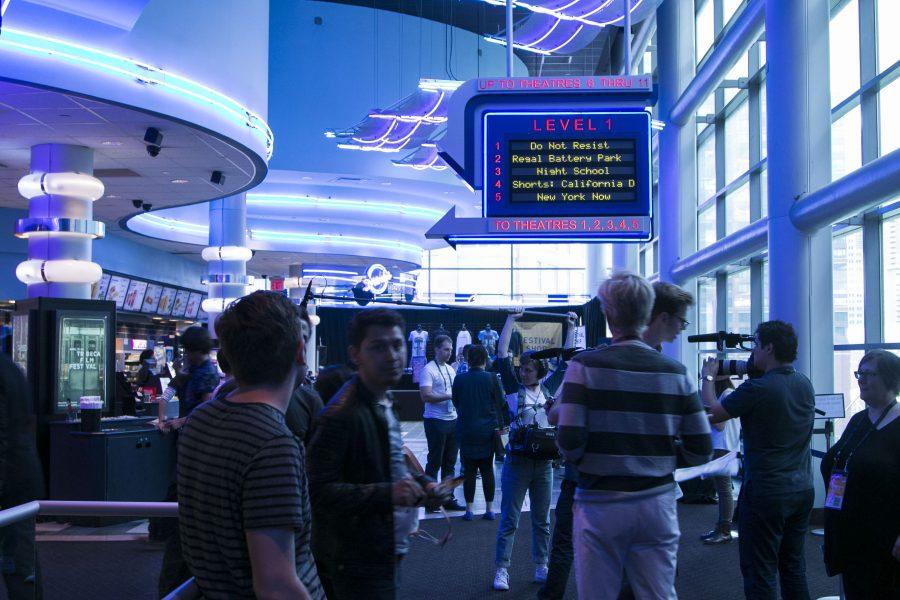‘High-Rise’ Falls Short
April 25, 2016
It’d be easy to compare Ben Wheatley’s “High-Rise” to Bong Joon-ho’s charismatic, beautiful though hollow 2013 anti-capitalist thriller “Snowpiercer.” It’d be easy, but it’d also be fair, given the jaw-dropping, drool-inducing awe both films inspire when viewing them, going all in on visual construction in hopes no one notices neither has much to say. Wheatley’s take on class warfare, which is playing at this year’s Tribeca Film Festival, has less brutality than Bong’s work, instead anteing up on atmospheric experience.
Based on J.G. Ballard’s 1975 novel of the same name, the film sees most of the action occur within the interior of a lavish apartment complex on the brink of an unnamed British city, the building being one of many like it. Floors are arranged based on class hierarchy, with the rich at the top with plenty of air and space and the poor at the bottom with close to nothing. When the power starts to get faulty, all hell breaks loose, leading to some devolution. The concept isn’t a particularly refreshing one where it may have been in the mid-’70s, though it has potential to offer commentary on current day America, given the many disenfranchised voices that have arisen during the presidential race.
The high rise ought to be floating upside down though, given how characters act like the blood has fully rushed to their heads. Fortunately, Tom Hiddleston anchors the film, providing a proper, weighty presence that prevents anything from floating too far away. He portrays lonely Dr. Robert Laing, who moves to the complex without much backstory, other than his sister having recently departed.
His fellow constituents include Charlotte Melville (Sienna Miller), a particularly salacious, well-connected resident, Richard and Helen Wilder (Luke Evans and Elisabeth Moss, respectively), a married couple that’s half carnal, rebellious machismo and half flighty innocence, and Anthony Royal (Jeremy Irons), the obligatory though comically eccentric architect for the building. “High-Rise” boasts a roll call of talented actors, making for moments of delicious chemistry once things fall apart in the story.
The entire design is awfully joyous to look at as well, from the building appearing like some alien monolith, to the ‘70s futurism of the clothing and interiors, to Royal’s mirrored elevator, creating an alluring, reflecting environment that goes on to oblivion.
Much of the film, though, is held back by Wheatley’s over ambition. What feels like nearly a third of the movie is done in montage, as if intercutting between three parallel scenes will provide a greater picture. Instead, it paints half a canvas, which causes for discombobulating, fickle filmmaking. The camera can never rest to let one character honestly speak, an especially devastating fact when few of the residents came off as sane or real.
In a film hoping to provide an analogue for capitalism’s issues, providing a disorienting though immersive cinematic experience doesn’t accomplish much. Inarguably, the very fact that there is no explanation for the power failures, other than “building issues” undermines any attempts at honest political commentary, especially when the final sequence reeks of didacticism.
In a film striving for the political, it is unacceptable to walk away having accomplished nothing in the way of anything intellectual, particularly when a near-two-hour runtime feels double that. In the end, “High-Rise” is just overloaded, but only half-baked.
A version of this article appeared in the Monday, April 25 print edition. Email Ethan Sapienza at [email protected].

























































































































































